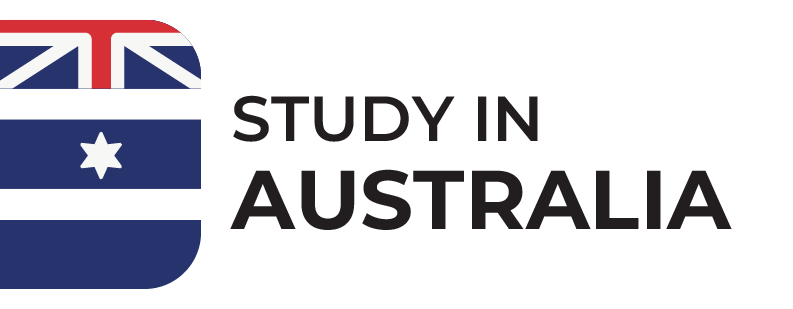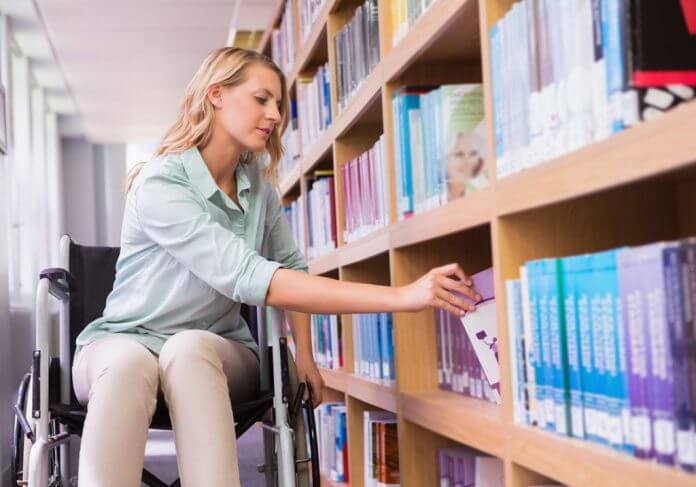Studying in Australia as a student with disabilities is about joy and intellectual growth, regardless of your mental or physical health. Universities in Australia embrace values of equality and celebrate the diversity of all kinds in higher education to guarantee everyone an optimal learning environment. In addition, education authorities are fully committed to providing support through effective and concrete strategies.
But, studying abroad can appear overwhelming to almost every student if proper information is not collected beforehand. In addition to common challenges, students with disabilities in Australia may encounter additional problems related to their disabilities.
The range of services that students with disabilities need is wide and often specific to an individual, and sometimes unintentionally universities’ disability support services may not live up to students’ needs. They will require a record of your specific needs related to your disabilities to be able to adjust their support policies and accordingly initiate proper action.
Plus the way these services are delivered in Australia may be quite different to what you’d expect in your home country. For example, if you interpret through signs, then you must know that in Australia sign interpreters use the Australian Sign Language (AUSLAN).
With that in mind, it is essential you get to know well in time what does your chosen University in Australia provide to students with disabilities in terms of both learning assistance and your easy movement around campus. Also, it is very important to be aware of your legal rights as a student with disabilities in Australia.
This guide will help you define what specific needs you will submit to the disability support service running at your university and will help them effectively meet your disability-related demands. Since this information is often vague on the web and students usually have a problem to properly comprehend it, in this page you will find everything you need to know about studying in Australia with disabilities.
Table of Contents
My rights as a student with disabilities in Australia?
The Australian government works hard on providing students with disabilities equal opportunities to attend tertiary education. Laws are the basis of their commitment to protect and promote equity principles in education.
Under current law, every university or any other involved party in the education process is obligated to provide an equally-accessible learning environment be it in terms of learning assistance or infrastructure.
To date, there are two legal acts upon which students with disabilities in Australia have their rights protected and guaranteed:
Disability and Discrimination Act 1992 – A legal act voted by the Australian Parliament in 1992 which states that every act of discrimination toward disabled people, including them in education is against the law, therefore is condemned.
Disability Standards for Education 2005 – Built upon Disability and Discrimination Act 1992, the Disability Standards for Education was amended in 2005. Its purpose is to ensure higher education providers in the UK are aware of their responsibilities in relation to disabled students and to measure how they match with specific standards. The act is reviewed every 5 years.
What does the university offer for you?
Your initial resource for any kind of information or support regarding your disability must be your university. All universities in Australia have a specific disability support service office integrated in their campus or a professional Disability Adviser. Responsibilities in charge of this office are many, including learning assistance and emotional care for students.
It is highly recommended to register at the university’s office for students with disabilities as soon as you enroll course or within the first week of the semester. This will give them enough time to evaluate the impact your disability will have on your studies and in turn, will be able to put support in place at the right time, in the right way.
The range of their services is wide and can also be modified in case you have specific disability-related needs. For example, you may have some hearing problems and you need some technology hearing aids to use while in class with the participation of your teacher. In such a scenario, the disability support service may take care to equip you with such devices and will also request teachers to play their role in the process.
The services provided by this office may be divided into three major categories:
Infrastructure adjustments (equipment) – The Disability Support Service can request from university to apply certain changes in the infrastructure of the campus. For example, a student may need a hearing implant in his classes and the university must do what’s necessary to provide and install those devices. Or a student in a wheelchair may face difficulties reaching to the university’s library and Disability Support Service will work on building an accessible route to the library.
Academic adjustments – Te University must allow for some flexibility in university courses if a student with disabilities wants to follow a specific study curriculum because of his/her learning disabilities.
Technical adjustments – Due to their disability some students may also find it difficult to meet deadlines and rigorous schedules applied at the university. If their disability is assessed to have such a negative impact on student’s learning capacities the university is obligated to apply other rules to them.
For example, students with disabilities may need additional time to complete their exam and teachers must allow them to do that. Or a student with sight loss who needs university books written in Braille language may request Disability Support Service to add books he/she needs in the university’s library.
Apart from common practical services, these offices are also concerned with students’ emotional state. They know that studying for students with disabilities can often become stressful and wary. At this stage, they provide their best professional counselling to help them go through, feel accepted and valued in the student community.
The documents required to register as a student with disabilities may vary depending on the university of your choice. Mainly, to register at the disability support service you must fill an application form and provide relevant evidence of your disability. Usually, a certified medical certificate is sufficient, but the university may also require some additional documents to be able to respond properly to your disability needs. For that, a document which describes the support you had received in the past or a professional statement by a Disability Adviser in your home country may also help the university adjust their approach toward your disability-related problems.
Important note: Universities in Australia take care that students’ personal information related to their medical or mental health remains confidential, so they won’t feel any kind of emotional pressure. Also, the Disability Support Service focuses more on describing what effects can student’s disability can have in his/her studies, rather than going into details about that disability is.
An accessible campus
One of the most common problems students with disabilities face is free movement. Fortunately, universities in Australia have an extensive network of accessible route pathways to enable students with disabilities to move freely around campus and they continually invest in improving this infrastructure.
But is quite understandable that for a foreign student like you that information is not known in the first place. Universities in Australia want you to know what to expect before even coming to Australia. For this purpose, they often offer maps where accessible route pathways are shown on the campus.
Scholarships for students with disabilities in Australia
Students with disabilities in Australia are also provided with various scholarships to encourage and support them financially during their studies. Since there are so many funds available, it is not necessary to be a top student to be eligible for a scholarship. There are countless scholarship schemes for students with disabilities funded by different organizations be it private, governmental, federal and charity.
A little research is all it takes to find these scholarships and to help you with that we have listed some of them below:
- The Junie Opie Fellowship
- Centrelink: Living Away From Home Support
- Australian Disability and Indigenous People Education Fund
- The Alastair McEwin Scholarship at the University of Adelaide
- Relocation Scholarship
- Sir Charles Bright Scholarships
- Victoria University Equity Scholarships
- Student Start-Up Scholarship
- Justice Victoria’s Disability Scholarship Program
- ParaQuad NSW Scholarship
- Griffith University Uni-Start Equity Scholarships
- Gregory and Dolores Farrell Scholarship
- Special Circumstances University Postgraduate Awards at the University of Western Australia
- Tasmania Access Bursary
- Sir Charles Bright Scholarship
- The Walter and Eliza Hall Trust Opportunity Scholarship
In addition, there are also a lot of scholarships funded by individual universities and other organizations. Also, students with disabilities in Australia are entitled to plenty of favourable student loan schemes provided by the Higher Education Loan Program (HELP).
Distance Learning for Students with Disabilities in Australia
Studying abroad is not all about pursuing a whole new education challenge, but also gaining advantage of its adventurous experiences. Sometimes despite your high commitment and desire to travel abroad to Australia, like other students with disabilities, your personal disability-related circumstances may suggest you do otherwise. Or you might not want to be far from your loved ones but at the same time, you still aim for that university degree in Australia. Whatever the reasons, there are other convenient alternatives equally beneficial.
Universities in Australia are committed to providing all students with equal opportunities to chase their educational dreams. Therefore they offer a wide range of online degrees you can fully attend from your home. These degrees are offered from a broad array of study areas and at all academic levels. This is an assurance that no matter your personal academic interests there will certainly be a program to suit you. In addition, universities have continually worked to improve teaching and assessment methodologies to students with different needs.
Distance learning is becoming a popular way of attending higher studies for all students regardless of their physical health. It is an excellent way of overcoming barriers that your disability might cause you to study abroad in Australia.
Moreover, it offers you several other advantages that traditional learning obviously doesn’t. Essentially that includes opportunities to decide over the course schedule and content you want your course to contain or the way you want that to be taught.
Remember that many distance learning students use this flexibility to have a better time-management and spend time doing other activities, most often engaging in paid activities and you can do the same.
What makes distance learning a still better study option for disable students is that it allows them to have more hours of personal trainings. Your tutor is there all for you and will strive to find the most practical methodologies to help you learn efficiently.
This turns especially very beneficial if you have a disability that causes problems in your cognition abilities to understanding the study material. For example, a student with Attention Deficit / Hyperactivity ADHD Disorder might lack concentration during a certain period of the day and so the tutor will take this into consideration and will propose a proper solution.

